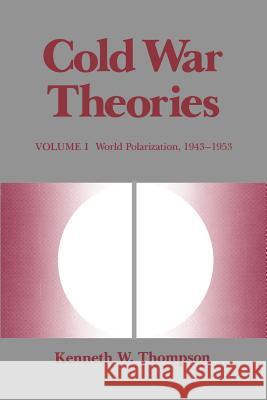Cold War Theories: World Polarization, 1943--1953 » książka
Cold War Theories: World Polarization, 1943--1953
ISBN-13: 9780807117446 / Angielski / Miękka / 1991 / 262 str.
In this examination of the Cold War, Kenneth W. Thompson offers a broad yet specific account of its history and its historians. Thompsons aim is to find the best framework for understanding how the Cold War originated, what forces and factors produced it, how Soviet and American policies intensified the conflict, and what alternatives were open to the rivals. He evenhandedly sets forth three competing theories of the Cold War--the orthodox, revisionist, and critical/interpretative views--and reveals how the ideological confines of certain interpretations have made for limited understanding and sometimes mistaken responses. Thompson shows that especially orthodox and revisionist historians are misled by their exaggerated estimates of intentions, interests, and national capacity. The book follows the course of the Cold War from the end of World War II and American demobilization through the war in Korea. Tracing the influence of theories on policy makers, Thompson finds missed opportunities and unintentional acts of belligerence in recurrent periods of tension, as in the debates over Poland, Iran, the Truman Doctrine, the Marshall Plan, NATO, and the Berlin Blockade. Yet compared with later periods in the Cold War, the author contends, this was a golden age in American foreign policy.











